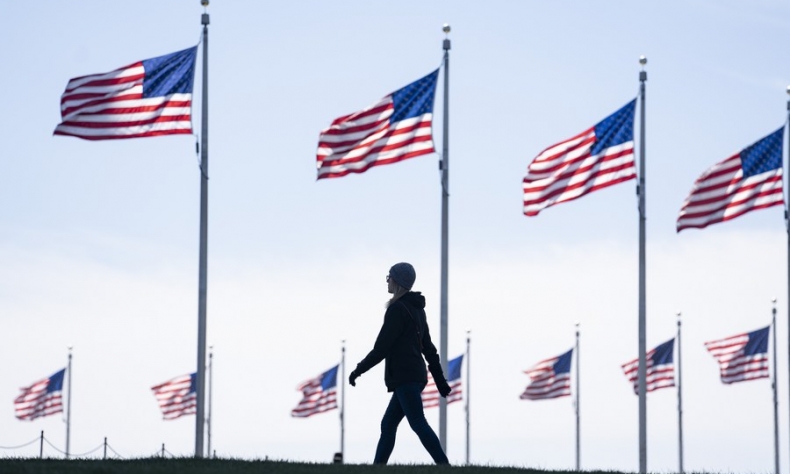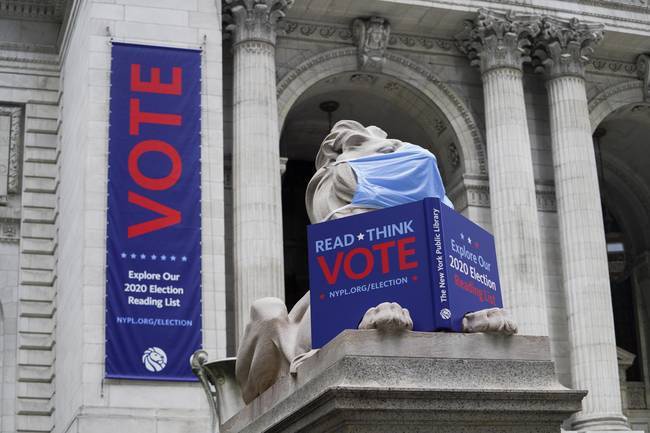Why Americans No Longer Feel Democracy Is Delivering

American politics is not so much a system for change or the voice of the people as it is a means to consolidate the status quo to preserve certain interests. But as people’s patience and tolerance of it wears thin, the constitutional order of the U.S. will be subject to more and more tests in the years to come.
As the U.S. midterm elections approach this November, a growing number of Americans are losing faith in the ability of their own democratic system to deliver for them.
A New York Times/Siena poll found that 71% of registered voters agree that democracy is under threat, ranking as the third most important issue in the election. Amongst those who agreed, the largest share of voters, 14%, agreed that government corruption is “to blame for the current threat to democracy.”
Although the U.S. aggressively preaches its political system to the rest of the world, its own population is increasingly losing faith in it. This is because there is more to the concept of “democracy” than the mere ability to vote between two parties, almost identical in outlook. Moreover, Americans are realizing their will, interests and perspective in the process of government could not matter less to U.S. elites.
The U.S. government serves the interests of the “upper class” rather than ordinary people. It was, after all, founded by a coalition of landowners who sought to rebel against the rule of absolute monarchy to establish a state that maximized their own economic interests, pursued through territorial expansion. It is no coincidence that the fundamentals of American liberalism concern landownership and low taxation because this is the class constituency it represents.
Even though much has changed across nearly 250 years, the underlying theme otherwise remains the same. America remains a country run by the elite, whose democratic process is engineered for the benefit of that elite. American voters are given a choice between two major parties, both of whose political power and influence are backed by the super-wealthy.

U.S. political campaigns are completely fueled by big money, unparalleled in any other country. As a result, its election campaigns became orchestrated theatre propelled by the mainstream media. The rigid manner of American elections means that ordinary people’s actual “choices” in their hope for change are limited. It also means, in turn, that the actual value and effectiveness of U.S. democracy are oversold. This is without even accounting for other factors, such as endless gridlock in the policymaking process.
It is no surprise that in the face of such growing disillusionment with U.S. politics, that faith in government is diminishing. Therefore, political tensions, polarization, and instability have long been growing throughout America. One of the most defining examples of this was the rise of Donald Trump. While his presidency was one thing, the way it ended, with him refusing to concede and causing the Capitol attack of 2021, was another. This shows the growing fragility of American politics.
As trust in the system diminishes, people’s willingness to adhere to its rules decreases. Yet while Biden was heralded as a “breath of fresh air” to Trump and a “return to normality,” that has, in fact, not been the case. His promises to ordinary Americans have been hollow or backtracked while the nation struggles with surging inflation, living costs, and growing income inequality.
Given such, the upcoming mid-term elections don’t appear to offer an alternative upfront to make anyone’s lives better, as U.S. politics continues to be a never-ending drama and tug of war over the same contentious issues while real problems get effectively ignored. American politics is not so much a system for change or the voice of the people as it is a means to consolidate the status quo to preserve certain interests. But as people’s patience and tolerance of it wears thin, the constitutional order of the U.S. will be subject to more and more tests in the years to come.
 Facebook
Facebook
 Twitter
Twitter
 Linkedin
Linkedin
 Google +
Google +







